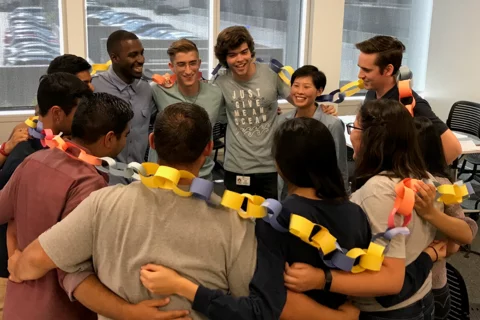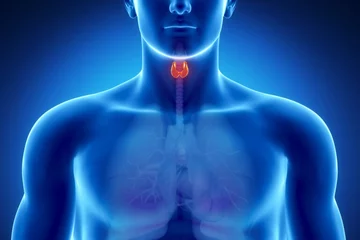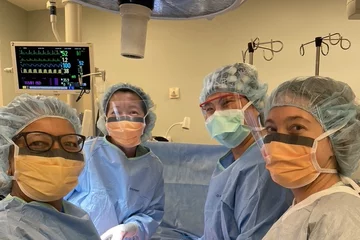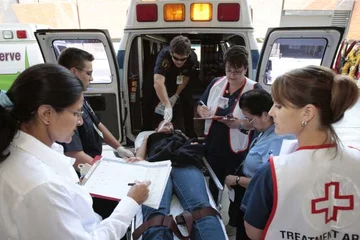Perspective from Emma Ledesma, Administrative Director for UCLA PRIME
Graduates of the David Geffen School of Medicine at UCLA often find positions at leading hospitals, clinics and research facilities. For some, this means working as physician leaders in communities where socioeconomic or cultural barriers limit the ability of patients to access quality healthcare.
UCLA PRIME prepares those students for the unique challenges they'll face and the impact they can have on these individuals in such communities. Emma Ledesma, MA, administrative director for UCLA PRIME, has co-headed admissions and student advisement since the program launched eight years ago. She discusses the program and the type of students PRIME wants to recruit.
How It Works
PRIME is a five-year concurrent degree program through which students earn a traditional MD and a complementary master's degree. Each year, the program accepts 18 students, all of whom complete their medical education at the David Geffen School of Medicine as part of PRIME-Westwood or PRIME-Drew cohort.
"PRIME educates culturally sensitive physicians who want to serve diverse populations in California," Ledsma says. "We hope they will also become leaders in policy, administration, research or academia."
These students begin medical school with a three-week pre-matriculation summer program, during which they attend leadership seminars and workshops hosted by PRIME advisory board members. They also complete a group — or "cohort" — project of their choosing. Past cohorts have worked with foster youth, community centers, incarcerated populations and pregnant teens. One of their most popular projects was "Happy Feet," wherein students worked with the homeless community to provide medical treatment and educate them on proper foot care.
PRIME students also complete an individual research project during the summer between first and second year, as well as special workshops related to underserved communities throughout medical school.
This year, UCLA PRIME is introducing a new project for all students and alumni. "It's going to be a PRIME project versus a cohort project," Ledesma explains. "We're still deciding on the subject matter of the project, but the goal is to foster stronger relationships between students in different years."
Students also get to know one another through the PRIME student council, biannual retreats, holiday parties and other social events. "We have a big sib/little sib program," Ledesma adds. "Current students really look out for younger medical students."
During the fifth year, PRIME members earn a master's degree in a related field, such as public health, public policy or business administration. This master's degree doesn't have to be completed at UCLA; past students have chosen to attend many other highly ranked schools.
Unique Doctors, Unique Challenges
While it's emotionally rewarding work, there are challenges for physicians who serve disadvantaged populations. "After medical school, most students have a lot of debt, and many can't afford to work in underserved populations," says Ledesma. "[The David Geffen School of Medicine at UCLA] covers tuition fees for PRIME students during the last year of medical school."
Most physicians stay busy, but working with underserved communities can be particularly stressful. "Many physicians are the only Spanish-speaking doctors at their clinics," Ledesma suggests. "They treat the most vulnerable patients and often work the longest hours."
For this reason, PRIME students are eligible for extended mentoring from successful clinicians who can share a variety of work-life balance tips. And from this additional master's degree, according to Ledesma, they realize new skills that afford them diverse practice opportunities throughout their careers. Ideally, "that helps them avoid burnout," she says.
Who Should Apply?
UCLA PRIME is a highly-competitive program; Ledesma expects to receive 1,100 to 1,200 applications for this year's 18 spots. Being a competitive applicant is a must, but the PRIME team also looks for passionate students who have served in (and have experience with) diverse medical populations.
"They might have volunteered at certain hospitals or clinics, or done research on underserved populations," Ledesma observes. "We've also had students who worked with Teach for America. We just want to see evidence they intend to work in under-resourced communities."




